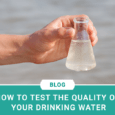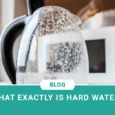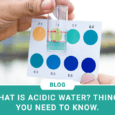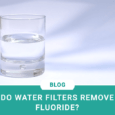Hard water isn’t exactly a term everyone is familiar with, but that’s just because it doesn’t really have anything to do with water to the touch. Hard water and soft water differ in a simple characteristic: the number of minerals in them.
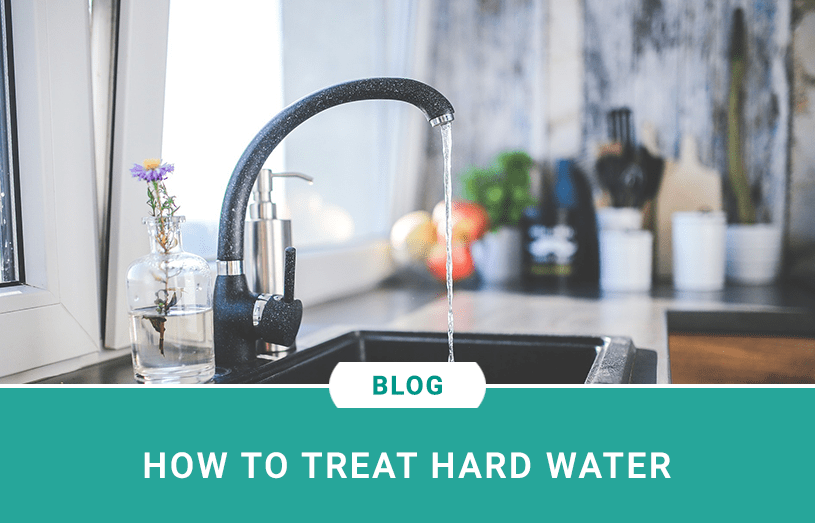
The minerals we are talking about mostly aren’t harmful and they’re actually beneficial to our body’s natural processes. We do need them and therefore it’s not the best option to completely strip them away.
However, many don’t like the taste hard water has and they don’t enjoy the smell so they decide to get a water filter to take out harmful minerals and lower the doses of other useful minerals to the perfect daily intake percentage.
Usually, along with normal minerals, you can find sulfates and bicarbonates in your water and you don’t want to be nauseous when they build up.
How would you know if you have hard water in your household?
There isn’t really any other test you can do besides the lather test. The soap lathers up easily in soft water, while it won’t in hard water. This is a pretty primitive test because it’s up to your subjective thought when you’re estimating how fast or slow the soap is lathering up.
What are the two types of water hardness?
There is temporary and permanent hardness. Temporary hardness is caused by ions and it can be solved easily by boiling the water. Permanent, however, cannot be „fixed” like that and you would need a water filter to fix that. It’s a result of mineral build up.
Is hard water dangerous?
Generally, you cannot say that hard water causes issues. It doesn’t make you unhealthy in any way, but it can harm your house. Mineral build up can clog your pipes and ruin your water heaters, as well as your dishes.
You have probably seen weird prints on your bathtub as well: it’s also mineral build up. What is created is called limescale, and it’s defined as a chalky deposit where hard water has evaporated. Let’s now talk about the methods of fixing up hard water residue and hard water itself.
Vinegar – the best natural solution
Hard water is hard because of minerals and minerals usually react well with acids. Vinegar is an acid and the rest is just pure chemistry. You need to put the dish inside the vinegar and let it dissolve for a whole hour.
You will later be able to scrub it off and use some soap as well to rinse the whole thing. This natural remedy is one of those „all-in-one” packages: it kills mold, bacteria, and germs! Obviously, this won’t fix your hard water. It will only remove the residue left by it. Because of that, you cannot rely on this for drinking water.
Water filters – drink your water more healthy
You have probably heard about water filters because they are often a part of an expensive fridge system. There have been more types invented so now you can actually just install one under your sink and make sure you are drinking good water.
Water filters are your best option because they last the longest, they are the most efficient, and besides removing unwanted minerals, they also remove cysts, excessive chemicals, parasites and similar scary things from your water.
They come in many shapes, with or without a faucet, made to stand alone or those made to be installed somewhere… There are many features you must look into and there are a lot of very different price tags put on them. Because of this, we advise you to check out a water filter buying guide and get familiar with them.
Water softeners – another system to work with
Water softeners are similar to water filters, but they don’t do the extra work. They just remove the excess minerals (mostly calcium and magnesium) and make the water more tasty and better for daily use.
You are still risking all of the other unhealthy things that may be in your water getting into your organism, but if you haven’t been worried about them, getting a water softener may be the best choice for you.
There are salt-based ones that do a process called „ion exchange” and they are, generally speaking, a bit more expensive than salt-free alternatives. Salt-free water softeners do a simple thing called „template assisted crystallization” and this converts the minerals into crystals.
Quick fixes – clean the residue
If you’re just looking for a way to clean the things that have already been impacted by the hard water, you may be wanting to check out some of the quick fixes. This won’t improve the quality of the water you drink, so make sure that you’re familiar with that.
There is a ridiculously big amount of water descalers out there, but they are actually just „limescale removers“. They are called „HG Scale Away Foam Spray“ or „Kilrock LIMESCALE Remover“. You get the idea. There are a thousand similar products and they are mostly pure chemicals.
Think about the impact these make on your house and you’ll soon see that risking your health is not the best option. Long live vinegar!
Summary
Hard water is not so much of a health concern, as it’s an aesthetic and taste problem. If you’re fine with the taste and the smell and you’re not bothered by cleaning yourself with hard water, you may want to focus on limescale only.
Limescale is the residue left behind hard water (the white, chalky one that clogs up your pipes) by using vinegar or chemicals.
If you’re looking to improve the quality of the water you drink, you may want to get a water softener or a water filter. The difference is in the fact that water filters remove other harmful things as well, not just excess minerals.
Make sure to do your research on prices or check out our buying guides to get an idea of what you need. Nobody likes to get ripped off!

